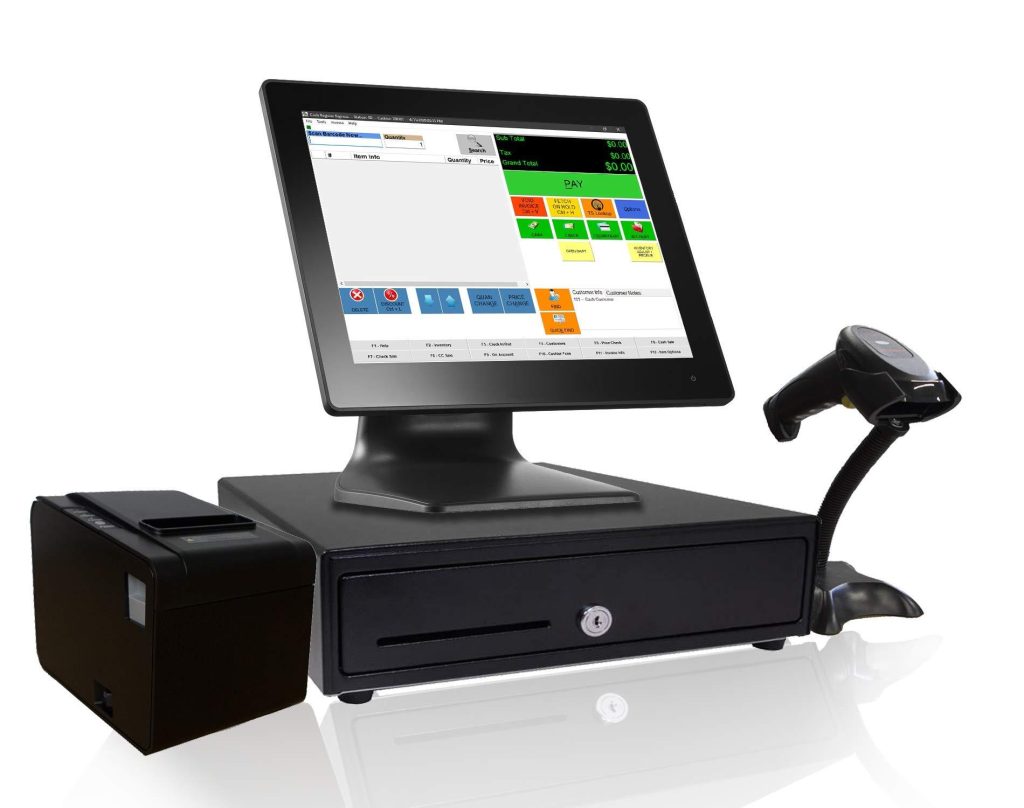
As a business owner, selecting the right Point of Sale (POS) hardware is crucial for efficient sales and a seamless customer experience. With so many options available in the market, it can be overwhelming to choose the right one for your business. In this article, we will delve into the world of POS hardware, exploring the different types, benefits, and practical tips to help you make an informed decision.
Introduction to POS Hardware
POS hardware refers to the physical devices used to process transactions, manage inventory, and track sales. The right POS hardware can streamline your business operations, improve customer satisfaction, and increase revenue.A typical POS system consists of a combination of hardware and software components, including:
- Terminal or register: The main device where transactions are processed
- Barcode scanner: Used to scan products and track inventory
- card reader: For processing credit and debit card transactions
- Cash drawer: For storing cash and managing change
- Printer: For printing receipts and reports
Types of POS Hardware
There are several types of POS hardware available, each with its own unique features and benefits.Some of the most common types include:
| Type of POS Hardware | Description |
|---|---|
| Traditional POS System | A traditional POS system consists of a terminal, barcode scanner, and cash drawer, suitable for retail and resturant businesses |
| Mobile POS System | A mobile POS system uses a tablet or smartphone to process transactions, ideal for events, pop-up shops, and food trucks |
| Cloud-based POS System | A cloud-based POS system stores data in the cloud, allowing for remote access and management, suitable for multi-location businesses |
| Self-Service Kiosk | A self-service kiosk allows customers to place orders and make payments independently, commonly used in restaurants and retail stores |
benefits of Choosing the Right POS hardware
Choosing the right POS hardware can have a notable impact on your business, offering numerous benefits, including:
- Increased efficiency: Streamlined transactions and reduced wait times improve the customer experience
- Improved accuracy: Automated processes minimize errors and reduce the risk of human mistake
- Enhanced customer experience: Personalized interactions and seamless transactions boost customer satisfaction
- Increased revenue: Efficient sales processes and accurate inventory management increase revenue and reduce losses
- Better inventory management: Real-time tracking and automated inventory management reduce stockouts and overstocking
Practical Tips for Choosing the right POS hardware
When selecting POS hardware, consider the following practical tips:
- Assess your business needs: Determine the type of business, number of locations, and transaction volume to choose the right POS hardware
- Consider scalability: Choose a POS system that can grow with your business, adapting to changing needs and increased demand
- evaluate compatibility: Ensure the POS hardware is compatible with your existing software and systems
- Check security features: Look for POS hardware with robust security features, such as encryption and secure payment processing
- Read reviews and ask for referrals: Research and ask for recommendations from other business owners to find the best POS hardware for your needs
Case Studies: Real-World Examples of Triumphant POS Hardware Implementation
Several businesses have successfully implemented POS hardware, achieving significant benefits and improvements. For example:
A retail store in New York implemented a cloud-based POS system, resulting in a 25% increase in sales and a 30% reduction in inventory errors. A restaurant in Los Angeles introduced a mobile POS system, reducing wait times by 40% and increasing customer satisfaction by 25%.
First-Hand Experience: Implementing POS Hardware in Your Business
Implementing POS hardware in your business can be a straightforward process, but it requires careful planning and consideration. Here are some first-hand tips:
- Start with a pilot program: Test the POS hardware in a small pilot program to ensure it meets your business needs
- Train your staff: Provide extensive training to your staff to ensure they are cozy using the new POS hardware
- Monitor and adjust: Continuously monitor the POS hardware and make adjustments as needed to optimize performance
Conclusion
choosing the right POS hardware is crucial for efficient sales and a seamless customer experience. By considering the different types of POS hardware, benefits, and practical tips, you can make an informed decision for your business. Whether you’re a small retail store or a large restaurant chain, the right POS hardware can streamline your operations, improve customer satisfaction, and increase revenue. Remember to assess your business needs, consider scalability, and evaluate compatibility to find the best POS hardware for your business. With the right POS hardware, you can unlock efficient sales and take your business to the next level.
Meta Title:
Meta Description: Learn how to choose the right POS hardware for your business, exploring the different types, benefits, and practical tips to streamline your operations and improve customer satisfaction.



